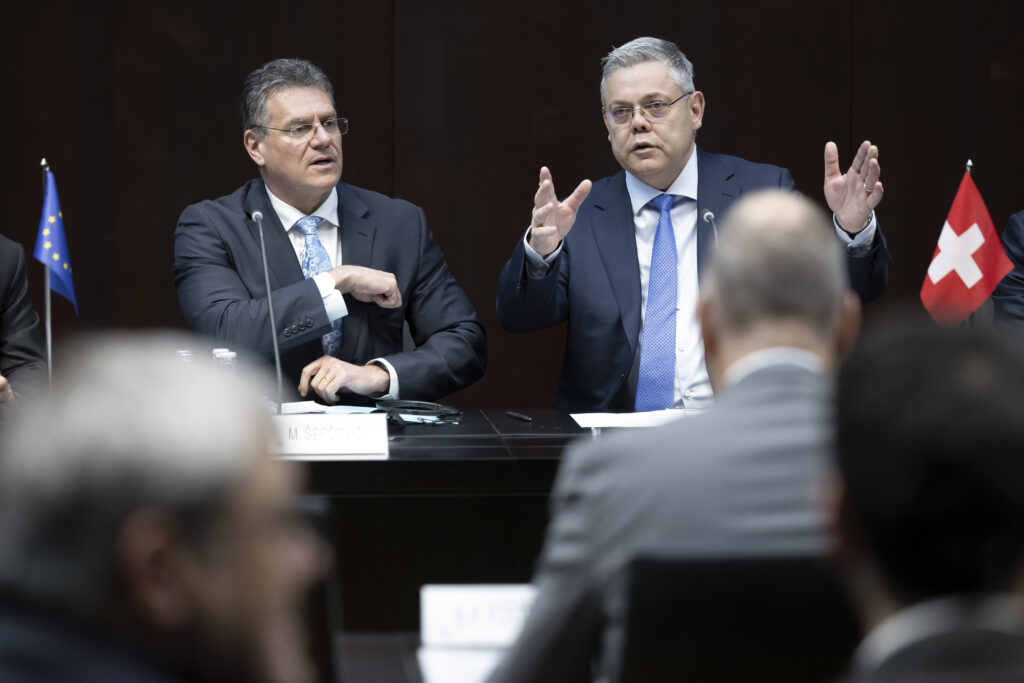الجمعة, مارس 31st 2023

The Swiss government announced this week that it will reopen diplomatic negotiations with the EU following a 2021 rupture that many thought would lead to a “slow motion Swexit.”
The original diplomatic negotiations with the EU dragged on for more than seven years until May 2021 when Switzerland abruptly announced it was exiting the talks. Many politicians in Bern said the EU was trying to force Switzerland to make big concessions.
Their biggest complaint was over treaties being put into a single text “framework agreement” that reflected EU interests. Meanwhile the EU argued that the past piecemeal negotiations with Switzerland could be streamlined for years to come.
Switzerland was frustrated over the proposed text and allowed some treaties to lapse regarding financial equity, medical regulations, and engineering standards. In a 2020 voter referendum, nearly 40% of Swiss voters said they wanted to pull the country out of the passport-free Schengen zone.
Switzerland is the EU’s fourth largest economic partner after China, the U.S. and the U.K. In 2022, their bilateral trade was worth roughly CHF280 billion.

Earlier this month, EU vice president Maroš Šefčovič visited Bern. He announced that the EU would forgo the overarching format. Shortly after, Switzerland’s 26 cantons voted in Parliament to re-start talks between Bern and Brussels.
“There is a positive momentum in the talks between Switzerland and the EU at the technical, diplomatic and political levels,” the Federal Council said this week. The details of the proposed negotiations were discussed in a “special closed session.”
Swiss diplomats have been authorized to begin formal negotiations this summer on a deal that would greenlight trade deals in exchange for concession on Swiss sovereignty, the فاينانشيال تايمز reports. The proposed, revived Swiss-EU package would “bundle” treaties instead of applying a universal framework to them. Treaties will cover energy, health, food safety, wage protection and immigration.
“We welcome the positive momentum towards modernizing EU-Swiss relations,” EU spokesperson Balazs Ujvari told the فاينانشيال تايمز. “Our objective remains the same: to upgrade EU-Swiss relations in a way that reflects Switzerland’s deep integration into the EU single market, with a level playing field as its cornerstone.”

Members of Switzerland’s largest political party, the right-wing Swiss People’s Party (SVP), say the government is “taking the people for fools.” Moreover, the “new framework” is the same “old wine” but in “new bottles.”
“There will be no agreement of any kind in which Switzerland abides by EU law and subject to EU judges,” the SVP stated. The party has vowed to fight against negotiations in an effort to maintain Switzerland’s independence.
يمكن مشاركة هذه المقالة وإعادة طباعتها مجاناً، شريطة أن تكون مرتبطة بشكل بارز بالمقالة الأصلية.
